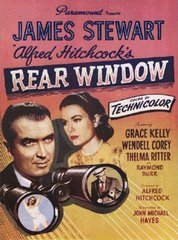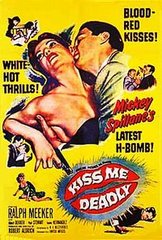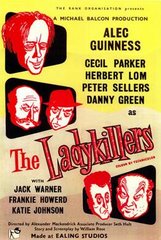
First, a rather lengthy quote, though one that I hope is as intriguing to the reader as it is to me (from C.S. Lewis's essay "Different Tastes in Literature," reprinted in On Stories and Other Essays On Literature):
I was suggesting last week that bad art is never really enjoyed in the same sense in which good art is enjoyed. It is only 'liked'; it never startles, prostrates, and takes captive. Now if I say that, I come up against a difficulty. It has never been better put than by that fine and neglected artist, Mr. Forrest Reid. In the little autobiography called Apostate he describes his delight, as a boy, in Miss Marie Corelli's Ardath. Even at that age the last part seemed to him 'so bad that it weakened the impression of what had gone before.' But that earlier impression remained. Perhaps wisely Mr. Reid has not risked an adult re-reading. He has feared that 'its gorgeousness would all too likely strike me as vulgarity, its passionate adventure as melodrama, its poetry as a crude straining after effect.' But none the less, adds Mr. Reid (who is as little likely as any man alive to be deceived in such a matter), there is no use in 'pretending that the old pleasure was not an aesthetic pleasure at all. It was. That is the whole point,' and he contributes the important suggestion: 'What I got then probably was the Ardath of Miss Corelli's imagination; what I should get now would be the very much less splendid Ardath of her actual achievement.'
This diagnosis may not be correct. Mr. Reid may have got the Ardath of the author's imagination, or he may have got the Ardath of his own; that is, he may really have been enjoying an embryonic composition of his own stimulated by mere hints in the book. But it is not necessary to decide between these two possibilities. The point is that, on either view, he was enjoying the book not for what it really was but for what it was not. And this sort of thing very often happens when the reader is imaginatively superior to the author, and is also young and uncritical. Thus for a boy in the first bloom of his imagination the crudest picture of a galleon under sail may do all that is necessary. Indeed he hardly sees the picture at all. At the first hint he is a thousand miles away, the brine is on his lips, her head rising and falling, and gulls have come to show that undiscovered country is near.
So far in my childhood movie series I've been pleasantly surprised by half-remembered movies like Fantasia, Pinocchio, and Dumbo; or I've been haunted and re-enchanted by perennial favorites like The Wizard of Oz; or I've been delighted to discover that my childhood tastes were actually quite good, with the rediscovery of the low-key and charming The Sword in the Stone. But now I've hit that disappointment which Forrest Reid was so fortunate to avoid by not re-reading his childhood favorite: The New Adventures of Pippi-Longstocking -- a movie that I loved as a child and wished were real (if only so Pippi and I could scrub clean our treehouse with broom-skates) -- is a bad movie. It is crap. It's tedious, episodic (in the worst way), badly acted, badly scripted, insipidly directed, and blemished by hideously 80s musical numbers (though I have to say, that title song is still as catchy as ever... Pippi Longstocking is coming into your world! That freckle-faced red-head girl you ought a know!). Tami Erin, as Pippi, is almost completely without charm, and her character, instead of being whimsical and carefree, is downright snotty and spoiled. I'm sure as a child I was on the side of Pippi. Today, I'm decidedly on the side of Miss Banister. Pippi is a brat.
It's not a mystery why I liked the movie so much as a kid: there are elements of a good movie here, but as is so often the case with bad movies, no one involved in the filmmaking process knew what to do with the real elements of entertainment that peeked through the dreck. As Lewis and Reid in the quote above point out, I was seeing the movie of my imagination, not the movie that was actually up on the screen. I was seeing broom-skates; flying on motorcycles and in "gyro-planes" with broken propellers; walking on walls and ceilings; living alone and eating pancakes in the middle of the night; having a talking horse and a monkey for companions; not having to go to school; ice cream fights and parades down main street; sticking your entire face into a cake for no reason; saving children from burning buildings by walking across a tightrope (Also: Did this movie contribute to my fear of fire? I would say yes, since that scene with the man throwing his cigarette into the pile of old mattresses and junk is less of a movie scene and more of a recurring nightmare that I've had for years -- Did it really all start with Pippi Longstocking?! The power of cinema, my friends...); being a pirate and having a cannibal king for a father. All these things and more, in my own imagination, were fashioned into a movie that was as carefree and adventurous as I wished my own life to be at seven years old. Through the cold, hard eyes of adulthood, I can now see that those things (the magic and wonderment) weren't really in the movie itself, at least not fully, or in any successful way was a work of art. They were only hinted at by the movie, hints and glimpses and unsuccessful attempts at whimsy that only became memorable because my own imagination absorbed them and made them into something with the power of a real work of art.
That cleaning scene where the kids skate around on brooms fashioned like roller skates is a perfect example. When I was a kid, that scene was the inspiration for many a dream of having a huge treehouse, a club house for my friend Andy and me, and we'd clean it by making broom-skates just like Pippi had used. It was my dream, for quite a few years after seeing the movie, to be crazy and wild like Pippi, to live in our club house and skate around with brooms on our feet. That it never came true only increased in my mind the fantasy and enchantment of that movie scene. And then I watched it the other day, and saw indeed those elements that had enthralled me as a child. But I also saw, couldn't help but see, how in the hands of a better director, a better script, and better actors, that scene could have truly been the scene of my imagination, instead of the weak, competent-but-completely-inartistic typical '80s kids movie crap-fest. Nearly every scene worth remembering was like that: a good idea ruined by poor filmmaking.
This whole experience seems to me to prove (in the way anecdotal evidence so definitively proves our pet theories) that kids, because they lack the critical eye, can very often fall in love with crap. They can dream and fantasize about and fashion great art from the most insipid hack work because they let their own imaginations fill in the bad spots. How many children a few years younger than I look back with longing on junk like Power Rangers and Pokemon, and how many of my own generation still cling to memories of things like, yes, Transformers. And that's just it: This junk is remembered not as it is, but as we wished it to be. The stories a child creates in his head of giant robots, of red-headed freckle-faced girls, of ninjas, are more thrilling than the swill that swill-makers peddle out every day for children to consume, but children consume it because children have the capacity to see beyond it to the stories of their imaginations, the stories that junk art is only able to hint at, but which provide the child's imagination with a thousand adventures and thrills.
I've decided to dump a few titles from my list of childhood movies I was going to rediscover, because I don't want to have my pleasant memories of these films dimmed by the reality that comes with viewing them with a more critical, adult eye. For some reason, call me crazy, I have a sinking feeling that if I watched it today, I wouldn't like Howard the Duck nearly as much as I did as a kid. Maybe I'll just let the memory of the movie endure, instead of crushing it with the weight of reality. Alas, for Pippi -- her movie, and my memory of it, were not so fortunate.



















7 comments:
Wait, does the Pippi Longstocking movie have a scene where the kids all float down a river in wooden barrels? I seem to recall experiencing something like that in the vasty fields of my childhood.
Exceptionally fine post, Derelict. Lately I've been hungering to fill some lacunae by revisiting old cherishables, but now I'm not so sure.
I'd like to think that certain crummy movies like the one you spotlight are actually preferable to stuff like Power Rangers, since they at least allow room for a child's imagination. So much of the crap that passes for kiddie entertainment these days does all the imagining for them, so to speak.
On that note, I've got a gem for you. There's this Canadian flick called Jacob Two-Two Meets the Hooded Fang (1978), which Dad presumably brought home from Blockbuster one night when I was just a lad. Now how in the world could a film like that live up to its title? And how could a fresh viewing compare with the one I had as a kid, which left me dazzled and haunted by vivid nightmares for weeks, nay, months?
Great essay. Also discomforting is when childhood favorites, which despite realizing they are crap when one reaches adulthood, somehow manage to continue to enchant a much younger generation. Scooby Doo. Josie and the Pussycats. Popular now to the point of leaping from the small screen where they were fairly innocuous, to the great big one, where they have become icons.
One wants to say to the little ones, "I know better now. Learn from my mistakes." But do they? No.
Unfortunately, I can't link to it because some of his archives are no longer up, but Filmbrain had a similar post a while back. A lovely essay on how he went to see the musical version of "Lost Horizon" as a kid, a big roadshow movie-palace event, and left thinking it was the greatest movie ever made. Seeing it years later rather obliterated that impression.
Maybe I am a big kid because most of my childhood favorites I still love. TV shows are another matter. I loved re-runs of "The Rifleman" for example and when I see it now I can't stand it.
Nate, there is indeed a scene of Pippi and the kids floating down a river in barrels. As with so much in this movie, it isn't nearly as whimsical and carefree as the description of the scene would indicate. And of course, there is peril, and Pippi is oblivious to it, and we're supposed to think Pippi is just so carpe diem, but she seems more like a menace than anything else. Thank God the sour, authoritarian dad was there to rescue his kids from sudden death. Oh that Pippi! What a scamp!
I feel like maybe I'm being a bit harsh on ol' Pippi, since the user comments at Netflix seem to indicate that children continue to love this movie, and there is something to be said for a piece of art that can create some kind of intense, important feeling in a child. But I'm still kinda of the mind that if something is worth reading or watching as a child it should also be worth reading or watching as an adult to be deemed truly "good."
I think I'm so shocked about Pippi because my childhood movie track record seems to be otherwise pretty good (I'm planning to write about Who Framed Roger Rabbit?, Tucker: A Man and His Dream, and Pee Wee's Big Adventure later). Much like you, Campaspe, I'm a kid at heart (inner child between the ages of 8 and 12, according to the internet quizzes I take all the time), so I have a relatively high tolerance for "kiddie" stuff.
And Jacqueline, I hate to drive off the handful of people who read my blog (thanks!) by admitting this, but I actually liked both the Scooby Doo cartoons, and the live action movies made a few years ago. I mean, I wouldn't recommend them to other people or anything, but for me they were the right mixture of nostalgia and stoner humor.
As much as I would like to dismiss Power Rangers and that ilk as not-as-good-as-the-kiddie-junk-in-my-day-dammit I'm reluctant, because I think it's hard for others to know exactly what kind of influence bad art will have on a kid. There could be a teenager out there right now whose imagination was inspired by the Power Rangers and who might take that inspiration and turn it into something worthwhile later on in life. Isn't that what Raiders of the Lost Ark and Star Wars were all about, afterall? But yes, from my own perspective, at least Pippi allowed a girl to dream. And you'll hear no argument from me that, for instance, the live action shows on Nickelodeon today are far, far inferior to the awesomeness we had in our day, like Salute Your Shorts and Out of Control and The Adventures of Pete & Pete. Kids today don't know what they're missing, I tell ya!
And I haven't seen or heard of Jacob Two-Two Meets the Hooded Fang, but I'll be on the lookout now -- it sure does sound awesome!
Campaspe, I would love to read that post from Filmbrain, so drat. As far as television is concerned, I think I had a pretty good track record, from Pete & Pete, to Ren & Stimpy, to Looney Tunes and the Muppet Babies. But I also watched a lot of reruns: Beverly Hillbillies, the A-Team, the Addamms Family, Green Acres, Bewitched, the Dick Van Dyke Show, Get Smart, etc. Some I've watched on TV Land and found just as hilarious as ever (Dick Van Dyke and Addamms Family especially), others, like Beverly Hillbillies and Green Acres I have a hard time watching at all. Get Smart will always be a masterpiece as far as I'm concerned, though I haven't seen it in more than ten years. As an adolescent I watched Petticoat Junction. I have absolutely no excuse for that one, I'm afraid.
The thing I like best about some of the TV shows you've mentioned, and other shows of the 1960s, is the lack of the infernal hand-held camera technique. Back in the day you got a nice steady shot, slow and intense closeups so you could study their features (they didn't have to whine about their inner angst all the time. We could see it on their faces.) and especially the slower pace of the action. If Matt Dillon or Jarrod Barkley or Carolyn Muir walked across a room, it took them near 20 minutes to do it. Then it was time for a commercial. By then, we were ready for one. Dang the jittery, jerking, vertigo-inspiring camera work of today.
Don't be ashamed of your Petticoat Junction phase. You were young. But you've obviously turned your life around.
Heh, thanks Jacqueline! I think it was that dang theme song that captivated me: "Petticoat. Junction."
Please don't even get me started on the shaky-cam obsession that current filmmakers are suffering from. I think they have totally lost the ability to hold the camera steady for a sustained shot, or if they do hold it steady it's on an extreme closeup of the actors face -- there's no sense of mise en scene, no sense of blocking, no sense of the actors moving within a space, it's all disembodied heads and Psycho-shower-scene style cuts.
Maybe the thinking is that it doesn't show how "talented" and "stylistic" their film making is if the camera just sits there and people act in front of it. Whatever. This is one of the things that drives me crazy about modern film making, and one of the reasons why I love older motion picture media.
Post a Comment